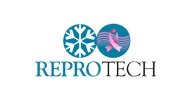Month: April 2023
Cancer Patients Require Improved Education About Fertility Preservation Options
Research shows patients facing possible infertility due to cancer treatment must be educated about the risks early in the treatment planning process. UPMC-Magee’s study published in March, 2023 is one of two studies included in this piece showing a critical need for improved access to fertility preservation for all who want to have a future family following disease recovery.
April 2023
By: ReproTech
Impact of infertility after cancer
Fertility preservation is a critical option for individuals facing fertility-threatening cancer treatments. Researchers Leslie Schover, Ph.D., and Terri Lynn Woodard, MD, conducted qualitative interview studies to discover what impact infertility has on individuals following cancer. The resulting consistent themes included:
- “infertility as a loss of control over future goals”
- “a threat to masculine or feminine roles”
- “a barrier to existing or new romantic relationships”
“Fertility preservation represents hope for biologic offspring and a restored sense of control, but also introduces other stressors such as continued uncertainty about parenthood in the future, financial strain, the need to make a decision at a time of overwhelming stress from a new cancer diagnosis, and the potential physical and emotional burden associated with procedures required to store gametes.”
Patient education about fertility preservation needs improvement
Patients receiving fertility-threatening treatment must be educated about the risks of treatment without delay according to guidelines from ASCO and the European Society for Medical Oncology. Instructive reference materials can be provided to the patient or guardian/parent if the patient is a minor. Despite the increased survival rate due to improved therapies, the referral rate for fertility preservation is still alarmingly low. Educational materials should include a reproductive specialist referral of the patient so they can explore their fertility preservation options. “Six studies published since 1999 found that only 4% to 31% of eligible patients with cancer were referred for consultation on fertility preservation, with no clear trends by gender or recency of the data. Even among patients who had some counseling, a large group, especially women, were dissatisfied with the information received.”
UPMC-Magee study shows travel distance impacts semen sample submission rates
We at ReproTech are aware of the need for improved access to preserving fertility before cancer treatment and have long partnered with oncologists nationwide to provide an avenue of affordable and safe cryostorage for their patients’ reproductive specimens. One such partner is UPMC-Magee, which recently conducted a study to assess if the distance patients had to travel impacted the rate of follow-through for providing a semen analysis to the fertility preservation center they were referred to.
After analyzing the records of 461 individuals referred to UPMC, researchers found that 326 patients provided a semen sample after their referral, and the remaining 135 did not. It was determined that those living farther from UPMC had lower odds of submitting their semen samples. In the instances where patients submitted at least one sample, distance didn’t impact the number of specimens given. An association was made between distance traveled and a minute increase in the total vials of semen cryopreserved.

From this study, UPMC researchers concluded that overall, persons with testes referred for fertility preservation had a high rate of sperm cryopreservation. The odds of providing a semen sample decreased by 15% with “every doubling of distance” from the center. Based on the results of this study, researchers concluded that action should be taken to improve fertility preservation access for those traveling far distances; the location of residence shouldn’t impede a referral. Reprotech knows this and other circumstances may hinder someone from submitting a semen sample. For this reason, the OverNite Male Kit was developed as an affordable and convenient option for patients to collect their specimens from the comfort of their homes. This kit includes postage-paid materials, which they can use to send specimens overnight to the UIC Andrology Lab for analysis.
Financial assistance is available for fertility preservation
ReproTech has a searchable database that lists our clinic partners who provide fertility preservation treatment for cancer patients. These clinics refer their patients to ReproTech for long-term specimen storage, ensuring that tissues are kept safely for future use. For the many oncology patients in economic need, Verna’s Purse is ReproTech’s financial assistance program which gives a generous discount for long-term cryostorage of embryos, oocytes, ovarian/testicular tissues, and semen. Learn more about fertility preservation and find financial assistance resources on our website.
Sources:
“Effect of Distance From Fertility Center on Utilization of Fertility Preservation Referral in Men”,
JCO Oncology Practice – An American Society of Clinical Oncology Journal. https://ascopubs.org/doi/abs/10.1200/OP.22.00789
“Fertility Preservation Before Cancer Treatment: Aspirations Versus Attainment”,
ASCO Daily News: Clinical News from the American Society of Clinical Oncology.
https://dailynews.ascopubs.org/do/fertility-preservation-before-cancer-treatment-aspirations-versus-attainment


